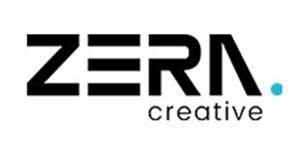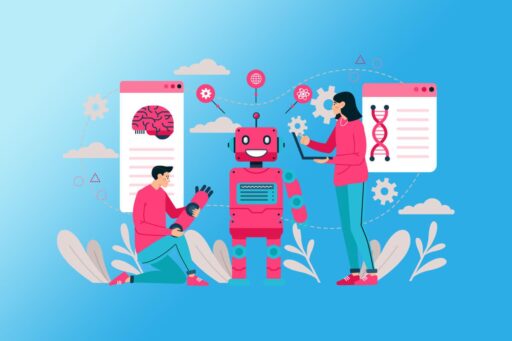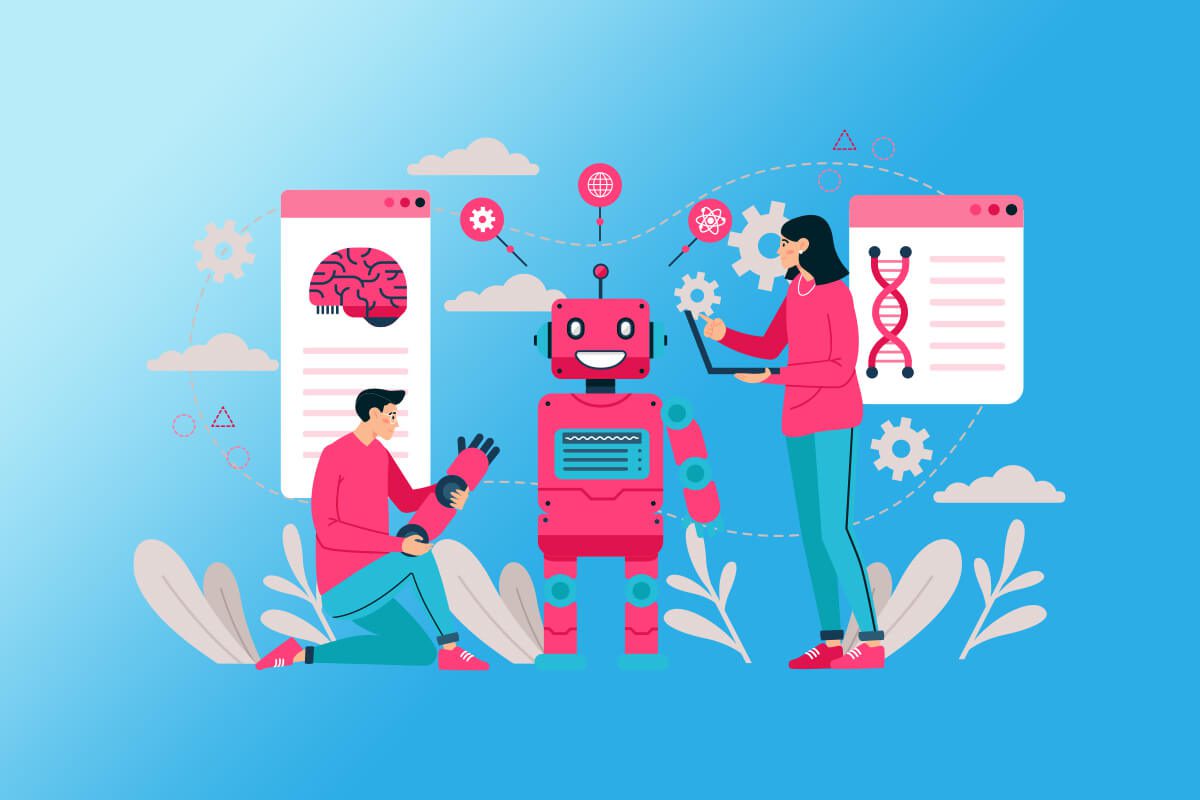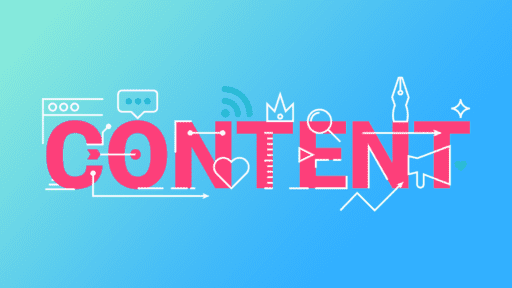Artificial Intelligence (AI) has made remarkable strides in recent years, and one of its applications that has gained significant attention is AI-generated content. This technology uses machine learning algorithms to generate text, images, videos, and more, often with astonishing accuracy.
While AI-generated content has its advantages, there are compelling reasons why individuals and businesses should exercise caution and avoid relying on it exclusively. In this blog, we will explore 10 key reasons why you should avoid AI-generated content.
Discovering the 10 Reasons to Avoid AI-Generated Content
Exploring the pitfalls and limitations of automated content creation.
1. Lack of Creativity and Originality
One of the most significant drawbacks of AI-generated content is its inherent lack of creativity and originality. AI models like GPT-3 are trained on vast amounts of existing data, which means they learn to mimic existing patterns and styles.
While they can produce coherent and grammatically correct content, they lack the ability to come up with truly novel ideas, emotions, or unique perspectives. Human creativity is the result of complex cognitive processes, emotions, experiences, and cultural influences.
AI, on the other hand, lacks these qualities, making it incapable of producing content that is truly unique or emotionally resonant. When you rely solely on AI-generated content, you risk publishing material that feels formulaic and unengaging to your audience, ultimately damaging your brand’s reputation.
2. Ethical Concerns
The use of AI-generated content also raises significant ethical concerns. These concerns encompass a wide range of issues, from copyright infringement to the potential for malicious uses of AI-generated text. Here are a few ethical considerations to keep in mind:
a. Plagiarism: AI models can inadvertently generate content that closely resembles existing copyrighted material. This can lead to potential legal issues if you inadvertently publish content that violates someone else’s intellectual property rights.
b. Misinformation: AI models are not discerning when it comes to the accuracy of the information they generate. They can produce misleading or false information that can have real-world consequences, especially in areas like news reporting or medical advice.
c. Malicious use: AI-generated content can be exploited for malicious purposes, such as spreading propaganda, generating fake reviews, or creating deceptive social media posts.
To maintain ethical integrity in content creation, it is crucial to have human oversight and ensure that AI-generated content is thoroughly reviewed and fact-checked.
3. Incomplete Understanding and Context
AI models lack a deep understanding of the world and the context in which content is created. They generate content based on statistical patterns in the data they were trained on, which means they may produce text that is factually incorrect, culturally insensitive, or contextually inappropriate.
For instance, an AI model might generate content that inadvertently includes biased language, promotes stereotypes, or is offensive to certain groups of people. Such content can lead to reputational damage and alienation of your audience.
Without human intervention to review and edit AI-generated content, you risk publishing materials that are tone-deaf or offensive, potentially harming your brand’s image.
4. Loss of Human Touch and Connection
Human-generated content carries a unique emotional and empathetic quality that AI simply cannot replicate. When humans create content, they draw from their own experiences, emotions, and personal insights, making it easier to connect with an audience on a deeper level.
Readers and viewers often appreciate content that reflects the authenticity and humanity of its creator. AI-generated content, on the other hand, lacks this personal touch. It may produce content that is technically correct but feels sterile and devoid of genuine emotion or empathy.
Building a strong emotional connection with your audience is crucial for content marketing success, and AI-generated content alone may struggle to achieve this connection.
5. Quality Control Challenges
While AI-generated content can save time and resources, it also poses significant challenges in terms of quality control. AI models are not infallible, and they can generate errors, inconsistencies, or awkward phrasing that may go unnoticed if not thoroughly reviewed by humans.
Ensuring that AI-generated content meets your organization’s quality standards requires diligent editing and oversight, which can offset some of the time-saving benefits. Furthermore, AI-generated content can sometimes lack the nuanced understanding and expertise that human creators possess.
In fields requiring specialized knowledge or industry-specific terminology, AI may struggle to provide accurate and contextually relevant content.
6. Dependency on Data and Technology
AI models rely heavily on the data they were trained on. This means that their output is limited to what exists in their training data, and they may struggle to adapt to rapidly changing trends, emerging topics, or niche subject matters.
In fields where up-to-date information and innovation are critical, such as technology, healthcare, or finance, AI-generated content may quickly become outdated or inaccurate. Additionally, relying heavily on AI-generated content can create a dependency on the underlying technology.
If there are technical issues, data limitations, or a lack of access to AI tools, your content creation process may come to a halt. This over-dependency on technology can make your content strategy vulnerable to disruptions.
7. Limited Adaptability to Style and Brand Voice
Every brand has its unique style, tone, and brand voice that resonates with its target audience. Human content creators understand and embody these nuances naturally. They can adapt their writing style to align with the brand’s identity seamlessly.
AI-generated content, on the other hand, lacks the ability to truly understand and replicate a brand’s distinct voice. While it can mimic patterns and structures, it often falls short of capturing the essence of a brand.
Over-reliance on AI-generated content can lead to a disjointed or inconsistent brand image, as the content may not align with the established brand identity.
8. Difficulty in Conveying Complex Ideas
Certain subjects and concepts require a deep understanding and nuanced explanation, especially in fields like science, law, and philosophy.
Human creators can distill complex information into digestible, understandable content through their expertise and comprehension of the subject matter. AI, while impressive, can struggle with intricate or abstract concepts.
It may provide content that lacks depth or fails to capture the nuances essential for a comprehensive understanding. Relying solely on AI-generated content in these domains can lead to oversimplification, potentially misleading your audience.
9. Reduced Flexibility and Adaptability to Feedback
Human creators thrive on feedback and can readily adapt their content based on constructive criticism. They can evolve and grow with their audience’s changing preferences and needs.
In contrast, AI models do not possess the capacity for true learning in the same way humans do. They are static and cannot actively incorporate feedback to improve their content generation over time.
This means that if your audience’s preferences or expectations change, AI-generated content may not evolve with them, potentially resulting in content that feels out of touch or irrelevant.
10. Adverse SEO Impact
Search engine optimization (SEO) is a critical component of online content strategy. AI-generated content may inadvertently harm your website’s SEO rankings if not used carefully.
Search engines like Google reward high-quality, original content while penalizing duplicate or low-value content. If AI-generated content is used indiscriminately and published without proper review, it can lead to duplicate or low-quality content issues.
This can result in decreased search engine visibility, reduced organic traffic, and ultimately, a negative impact on your online presence.
Conclusion
In conclusion, while AI-generated content presents an intriguing technological advancement, there are compelling reasons to exercise caution and avoid relying on it exclusively.
Striking this balance allows for the best of both worlds, harnessing the efficiency of AI while preserving the unique qualities and adaptability of human creators, ultimately ensuring the creation of high-quality, resonant, and ethical content that aligns with your brand’s identity and goals.
FAQs
Q: How do I protect my intellectual property when using AI to generate content?
To protect your intellectual property, consider using watermarking, copyright notices, or digital rights management tools. Additionally, review the terms of service of AI platforms to understand ownership rights and use licenses.
Q: What ethical considerations should I be aware of when using AI-generated content for marketing?
Ethical considerations include transparency (disclosing AI involvement), avoiding biased or harmful content, and ensuring that AI-generated content complies with legal and industry standards. Regularly review and fine-tune AI-generated content to align with ethical guidelines.
Q: Can AI-generated content be used for educational purposes, and how can educators incorporate it into their curriculum?
AI-generated content can be valuable for education. Educators can use AI to create customized learning materials, automate grading, and provide personalized feedback. However, they should ensure that the content aligns with educational objectives and standards.
Q: What are the potential risks of relying too heavily on AI for content generation in business?
Over-reliance on AI for content generation can lead to a loss of human creativity and personal touch, potential biases in content, and a reduced ability to adapt to rapidly changing trends. It’s crucial to strike a balance between AI and human creativity.
Q: How can businesses leverage AI-generated content to improve customer engagement and experiences?
Businesses can use AI-generated content for personalizing marketing messages, chatbots for customer support, and recommending products or services based on customer preferences. It can enhance customer engagement by delivering tailored experiences.







